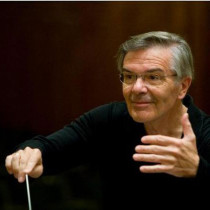 Do you know the name John Paul DeJoria? He is one of those people who started homeless, with nothing. Today he is a billionaire PLUS he is a philantropist, meaning he is always focused on making the world a better place to live for as many people as possible.
Do you know the name John Paul DeJoria? He is one of those people who started homeless, with nothing. Today he is a billionaire PLUS he is a philantropist, meaning he is always focused on making the world a better place to live for as many people as possible.
I so much love John Paul’s motto: “Success unshared is a failure“.
Success to be shared of course can be money. But so is
– a smile, so is
– giving support,
– inspiring others,
– sharing loving words and offering help and advise and
– giving encouragement.
In almost 40 years thousands of people have worked for his company Paul Mitchell Haircare. John Paul had just 50 people he ever had to let go. Everybody else stayed (!).
This is very unusual and shows that this man truly knows how to treat people well, how to care about them and how to see them as family.
I want to share with you two of his key principles in leadership.
Principle #1: “Correct people in private, praise them in public.”
A very simple, but very wise idea.
Interesting note: He uses the word correct – not critizise.
When people do something you don’t like and you have to correct (that is what we do as teachers all day long), do this in privacy where nobody else is hearing it. Correction under 4 eyes.
When you see something you really enjoy someone is doing praise them loud and wide that everybody can hear it. Praise in public.
This sheds a good light on the praised, on you as an appreciating person and on the one listening, because he feels touched by your positive words.
Principle #2: “Correct people the right way, not the wrong way.”
Here is John Paul’s right way.
1 – You tell them (in privacy!) what they did wrong and how to do it right.
Many times people do things wrong, because they don’t know how to do it better.
2 – Tell them what you so much love about them and what they are really good at.
3 – Praise them and encourage them to correct this one thing and make it a new strength.
I love this! Of course in music, the main part of correction is not made by being told 2 sentences. It takes a little more effort to get everything right in music making, some practice and active participation.
But the procedure of correction stays the same.
The secret of teaching is to break the complexity down to tiny little pieces that are managable with just a little effort. Expressed in a way that others feel seen and heared and cared for.
What is your best practice to correct someone when this is necessary?
What are some of your ways to share the good in your life?
Much Love,
Anselma
|


